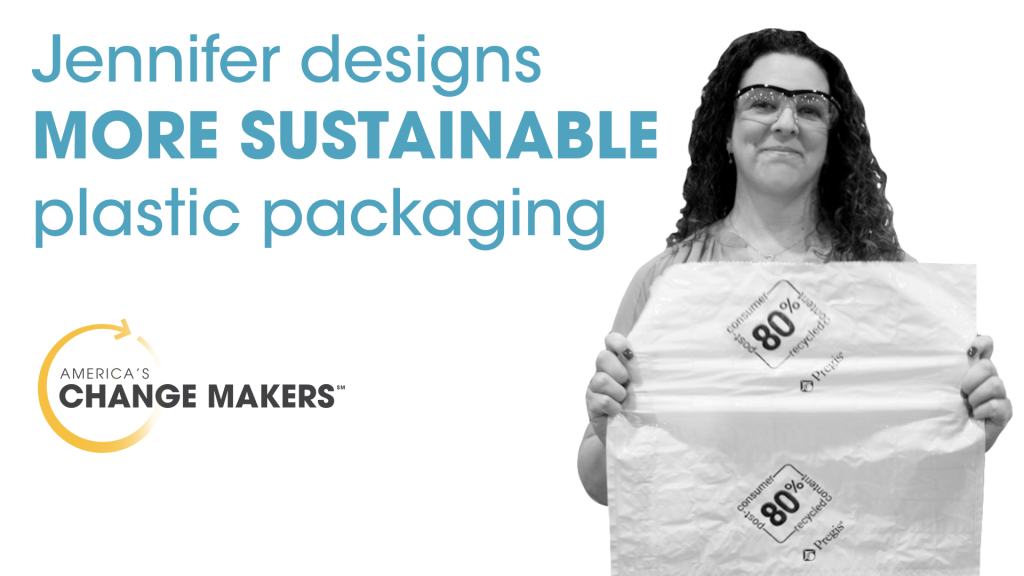Making Efficient Packaging More Efficient and Sustainable
Jennifer, a technology leader at Pregis, is revolutionizing the packaging industry by making it more sustainable. Her innovative work in creating efficient, sustainable packaging solutions ensures products arrive safely while minimizing environmental impact.






